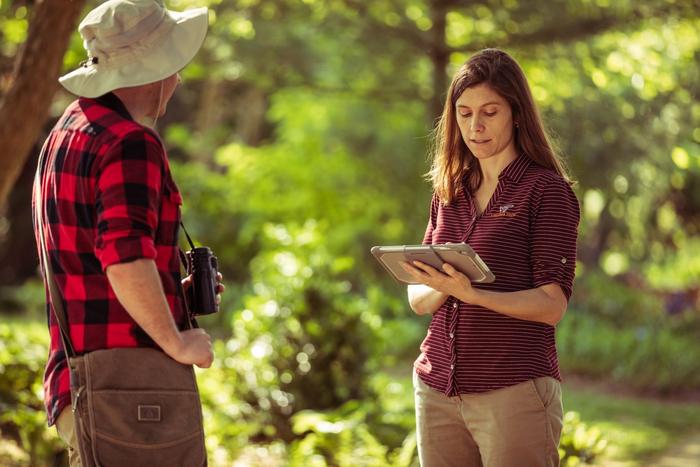Virginia Tech researchers are working to increase access and inclusivity in ornithology as part of a collaborative effort funded by the National Science Foundation.

Credit: Virginia Tech
Virginia Tech researchers are working to increase access and inclusivity in ornithology as part of a collaborative effort funded by the National Science Foundation.
The Leading Cultural Change Through Professional Societies of Biology program has awarded $500,000 to help researchers in the co-creation of affinity groups to facilitate diverse and inclusive ornithological societies. The program supports the design, implementation, and evaluation of projects that leverage the work of professional societies to advance diversity, equity, and inclusion in the biological sciences.
Goals of the project
- Understand the climate of three ornithological societies with respect to diversity and culture in order to recommend changes and resources needed to foster more welcoming and supportive organizations.
- Design a process for co-creating affinity groups, or “flocks” — identity-based groups created by and for members of these communities — that will facilitate “transformative resilience” for historically marginalized groups.
Why it matters
The landscape of science is changing: people from increasingly varied backgrounds, identities, cultures, and genders are pursuing careers in STEM fields. Support for this more diverse population of scientists needs to extend beyond “one size fits all” to better meet the today’s needs. Expanding support and strengthening the sense of community for individuals and groups who have not been historically welcomed in a discipline can foster a deeper sense of belonging and meaningfully broaden representation within that field.
Professional scientific associations and societies can guide and shape the culture within their respective fields, cultivating supportive communities and providing relevant resources to ensure that all scientists have the professional and personal support they need to succeed on their chosen career paths. This initiative will use an internal culture assessment conducted by the American Ornithological Society in 2022 as its starting point and seeks to build a scientific field that fosters a greater sense of belonging among society members from historically excluded communities.
How Hokies are leading
Ashley Dayer of the College of Natural Resources and Environment is the co-principle investigator for the project. Dayer is an associate professor in the Department of Fish and Wildlife Conservation and an affiliated faculty member of the Center for Coastal Studies and the Global Change Center, both part of the Fralin Life Sciences Institute. As a conservation social scientist, her research program focuses on 1) involving private landowners in durable working lands conservation, 2) managing coastal lands for birds and people, and 3) engaging underserved, marginalized, and uninvolved audiences in conservation, community science, and wildlife management.
“As a social scientist focused on bird conservation, inclusive research, and diversifying the field of science, I’m excited about this opportunity to work with the societies to co-produce evidence-based affinity groups,” Dayer said. “I look forward to working with Nathan Thayer to conduct surveys, focus groups, and workshops with members of the societies and build these affinity groups from the bottom up to meet ornithologists’ needs.”
Nathan Thayer, a postdoctoral researcher in the Department of Fish and Wildlife Conservation, will collaborate with Dayer.
The project also will provide educational and professional development opportunities for a postdoctoral scholar and undergraduate researchers in the university’s Multicultural Academic Opportunities Program.
Partners
- University of Nebraska–Lincoln
- American Ornithological Society
- Association of Field Ornithologists
- Wilson Ornithological Society




